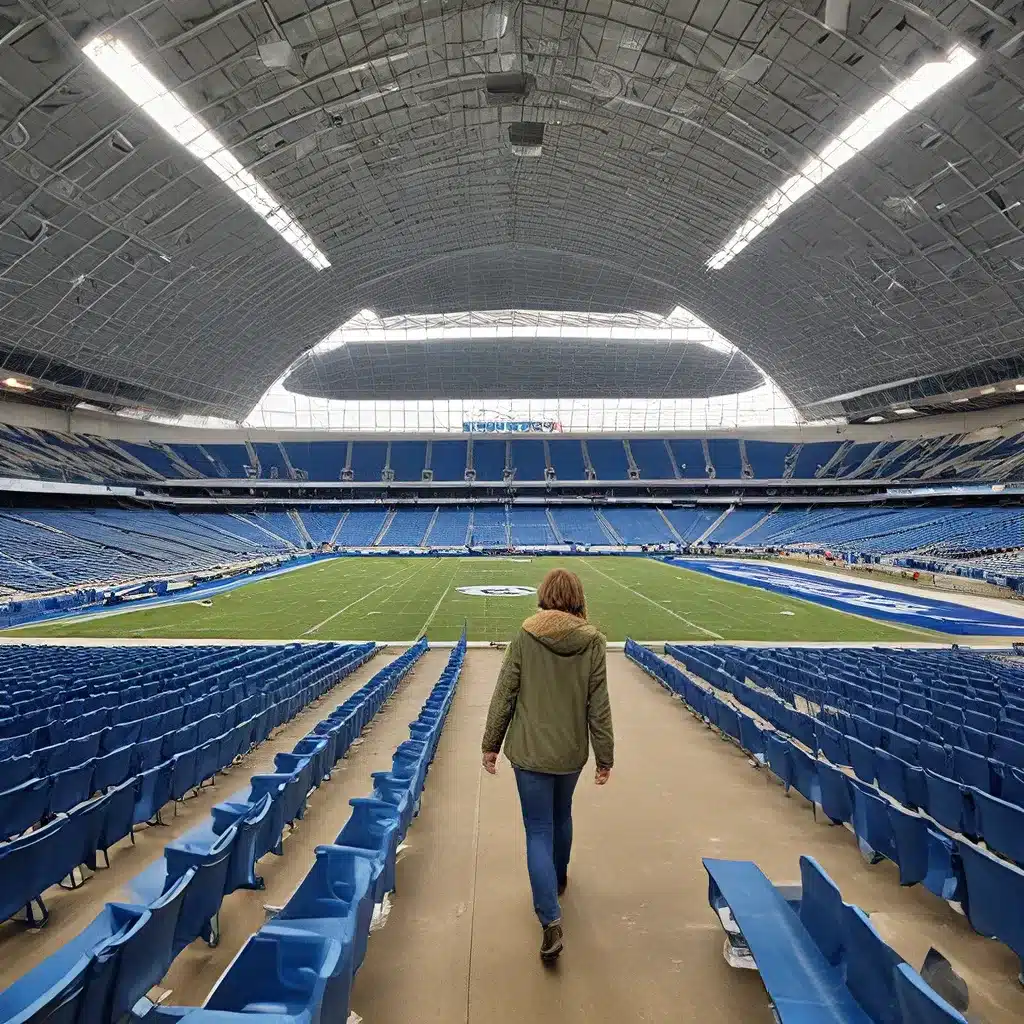
The Pontiac Silverdome, once a shining beacon of sports and entertainment in the Detroit metropolitan area, stands as a testament to the rise and fall of a city’s fortunes. This massive indoor stadium, opened in 1975, was home to the Detroit Lions and Detroit Pistons, hosting a wide range of events from Super Bowls to papal visits. However, the Silverdome’s story is one of both grandeur and decline, mirroring the broader narrative of Detroit’s own transformation over the decades.
The Birth of a Sports and Entertainment Hub
The Pontiac Silverdome was conceived in the early 1970s as part of a larger effort to revitalize the city of Pontiac, Michigan, a northern suburb of Detroit. Designed by the renowned architectural firm of C.A. Morrissette and Associates, the stadium was a groundbreaking project, featuring a unique inflatable, air-supported roof that could be retracted to allow natural light and ventilation during events.
The Silverdome’s inaugural event took place on July 31, 1975, when the Detroit Lions faced the Kansas City Chiefs in a preseason game. The massive, 80,000-seat venue quickly became a hub of sports and entertainment, hosting the legendary WrestleMania III in 1987, as well as concerts by musical icons like Michael Jackson and Pope John Paul II.
The Lions’ Roar and the Pistons’ Reign
The Silverdome served as the home stadium for the Detroit Lions from 1975 until 2002, when the team moved to their current home, Ford Field, in downtown Detroit. During the Lions’ tenure, the stadium witnessed some of the team’s most successful seasons, including their 1991-92 NFC Championship game appearance.
The Silverdome also played host to the Detroit Pistons basketball team from 1978 to 1988, a period that saw the team win two NBA championships. The Pistons’ move to the Palace of Auburn Hills in 1988 marked the beginning of the Silverdome’s decline as a premier sports and entertainment venue.
The Decline and Disrepair
As the Lions and Pistons departed, the Silverdome struggled to maintain its relevance and financial viability. The city of Pontiac, facing economic challenges of its own, sold the stadium in 2009 for just $583,000 to a Canadian developer, Triple Investment Group.
The Silverdome’s downward spiral continued, with its inflatable roof suffering damage in a 2013 winter storm, exposing the interior to the elements. The stadium fell into disrepair, with broken windows, damaged seats, and a growing sense of abandonment.
Attempts at Redevelopment
In the years following the Silverdome’s sale, various plans and proposals for the stadium’s redevelopment have been put forward, but progress has been slow. The current owners, Triple Investment Group, have expressed their intention to demolish the Silverdome and redevelop the 127-acre site, though the timeline for this process remains uncertain.
The city of Pontiac and the surrounding region have a vested interest in the Silverdome’s future, recognizing the potential for the site to contribute to the broader revitalization of the area. Proposals have ranged from converting the stadium into a mixed-use development with residential, commercial, and recreational components to leveraging its unique architecture for a sports and entertainment complex.
The Future of the Pontiac Silverdome
As the Silverdome’s fate hangs in the balance, the stadium’s legacy continues to be a subject of debate and discussion. Some view the Silverdome as a symbol of Detroit’s industrial past and the city’s struggle to adapt to changing economic realities, while others see it as a potential catalyst for renewed growth and development.
Regardless of its ultimate fate, the Pontiac Silverdome will forever be etched in the memories of those who witnessed its heyday, from the roar of the crowd at a Lions game to the electrifying performances of global superstars. As the region continues to grapple with the challenges of the past and look towards a brighter future, the Silverdome’s story serves as a powerful reminder of the resilience and determination that have long defined the Detroit metropolitan area.
Explore the rich history and potential future of the Pontiac Silverdome and discover how it fits into the broader narrative of Detroit’s transformation.

